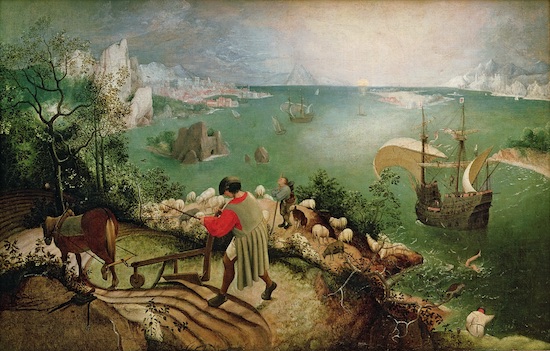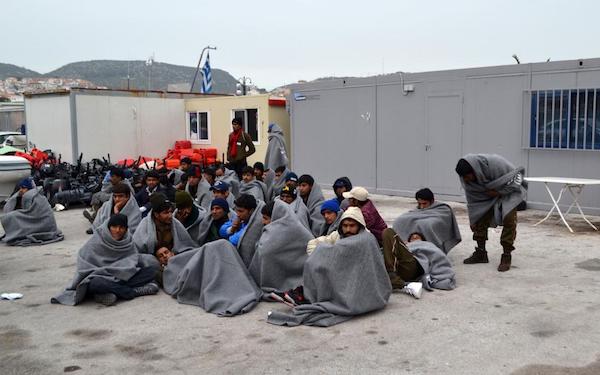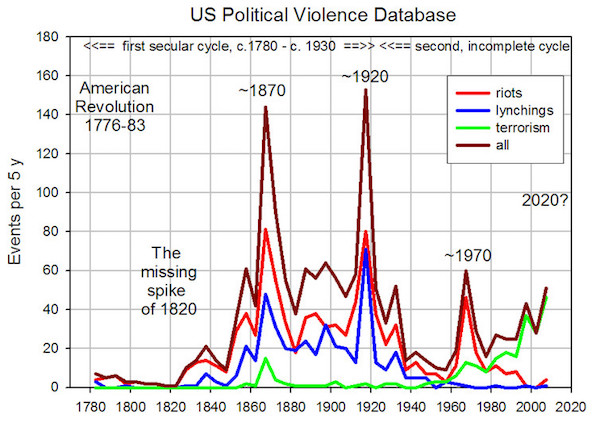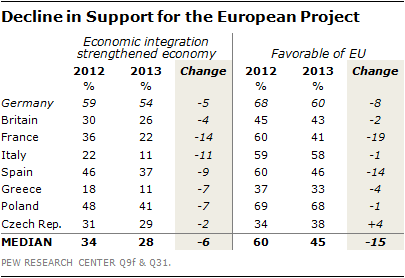
Henri Cartier Bresson Paris 1952

“It’s a case of that magnitude, it’s a case that frankly I think will ultimately end up before the U.S. Supreme Court, so that would not surprise me one way or the other.”
• Judge Blocks Trump Travel Ban Nationwide (ZH)
Following a brief moment of ‘success’ for the Trump administration as a Boston judge ruled Trump’s immigration policy was not a Muslim ban, a Bush-appointed federal judge in Seattle, who said the states of Washington and Minnesota can sue claiming their residents were harmed by the ban, granted a nationwide temporary restraining order blocking Trump’s immigration ban. District Judge James Robart ruled the executive order would be stopped nationwide effective immediately: his ruling was the most comprehensive legal rebuke of Trump’s Jan. 27 executive order prohibiting immigrants from Iran, Iraq, Syria and four other nations from entering the U.S. for 90 days. Judges in Brooklyn, New York, Los Angeles and Alexandria, Virginia, had previouslyissued orders that are less sweeping.
Washington Attorney General Bob Ferguson was delighted with the decision: “The Constitution prevailed today,” Ferguson said in a statement after the ruling. “It is not the loudest voice that prevails on the Constitution,” Ferguson continued speaking outside the courthouse. “We are a nation of laws, not even the president can violate the Constitution. It’s our president’s duty to honor this ruling and I’ll make sure he does,” Ferguson added hopefully. Good luck with that. In his ruling, Robart said that “the state has met its burden in demonstrating immediate and irreparable injury” while Fergsuon added that “Judge Robart’s decision, effective immediately, effective now, puts a halt to President Trump’s unconstitutional and unlawful executive order. It puts a stop to it immediately, nationwide.” The court order, effective immediately, will remain in place until the judge considers a motion – probably within a month – to permanently invalidate the president’s order, Ferguson said.
Ferguson, a Democrat, filed the lawsuit three days after Trump signed the executive order. The suit argued that the travel ban targets Muslims and violates constitutional rights of immigrants and their families. In his request for the order, according to Bloomberg, Ferguson had said the effects on the state included economic consequences for employers based there, including Microsoft, Starbucks and Amazon.com. Expedia, based in Bellevue, Washington, had about 1,000 customers with flight reservations in or out of the U.S. from the seven countries, he said. Minnesota, like Washington, cited the effect of the ban on students at its colleges and universities, as well as health care centers including the Mayo Clinic. The state’s 5.4 million residents included 30,000 immigrants from the affected countries, it said in the lawsuit.
According to The Hill, in a phone interview with CNN Friday evening, Ferguson said he “expected win, lose or draw” that the case would move “fairly quickly through, up to the Ninth Circuit” Court of Appeals – “just because of the magnitude of the executive order.” And hinting that the Supreme Court showdown we suggested previously now appears inevitable, Ferguson added that he is “prepared for this case to go all the way to the Supreme Court whichever way the Ninth Circuit Court of appeals goes,” he said, anticipating a challenge to Robart’s ruling. “It’s a case of that magnitude, it’s a case that frankly I think will ultimately end up before the U.S. Supreme Court, so that would not surprise me one way or the other.”

Trump’s legal team senses difficulties ahead: “..The justice department later said it would not immediately file for an emergency stay..”
• Airlines Told To Allow Banned Travelers Into US After Judge’s Order (G.)
Customs officials have reportedly told US airlines that they can board passengers who had been barred from entering the country after a federal judge in Seattle ordered a temporary halt on Donald Trump’s travel ban for refugees and people from seven predominantly-Muslim nations. District judge James Robart granted a temporary restraining order on Friday after hearing arguments from Washington state and Minnesota that the president’s order had unlawfully discriminated against Muslims and caused unreasonable harm. It was not immediately clear whether authorities would comply with the broad order, especially after officials reacted in confusion a week earlier, detaining valid visa holders and arguing with lawyers.
Late on Friday, the White House released a statement saying that it would seek an emergency stay against Robart’s ruling; an earlier request for a stay by a justice department attorney had been denied by the judge. “At the earliest possible time, the Department of Justice intends to file an emergency stay of this outrageous order and defend the executive order of the President, which we believe is lawful and appropriate. The president’s order is intended to protect the homeland and he has the constitutional authority and responsibility to protect the American people,” press secretary Sean Spicer said. In a second “updated” statement, the White House removed the word “outrageous”. The justice department later said it would not immediately file for an emergency stay, at least on Friday night, and reports said Customs and Border Protection (CBP) had informed US airlines that they should board travelers who had been barred by an executive order last week.

Looks like the worst of the chaos may be over. Trump can’t afford too many court battles, certainly if he loses them. He’s being told to confer with the lawyers first now.
• Trump’s Travel Ban Has Revoked 60,000 Visas For Now (R.)
About 60,000 visas were revoked under U.S. President Donald Trump’s executive order temporarily halting immigration from seven Muslim-majority countries, the State Department said on Friday, in one of several government communications clarifying how the order is being rolled out. The revocation means the government voided travel visas for people trying to enter the United States but the visas could be restored later without a new application, said William Cocks, a spokesman for consular affairs at the State Department. “We will communicate updates to affected travelers following the 90-day review,” he said. Earlier news reports, citing a government attorney at a federal court hearing, put the figure at more than 100,000 visas.
The government issued over 11 million immigrant and non-immigrant visas in fiscal year 2015, the State Department said. The immigration executive order signed by Trump a week ago temporarily halted the U.S. refugee program and imposed a 90-day suspension on people traveling from Iran, Iraq, Libya, Somalia, Sudan, Syria and Yemen. Trump said the measures would help protect Americans from terrorist attacks. Under President Barack Obama, Trump’s predecessor, the United States added those seven countries as “countries of concern” under its visa waiver program, effectively toughening U.S. visa procedures for individuals who visited those places during the past five years.
Trump’s executive order was at least in part informed by those restrictions. The new president, who took office on Jan. 20, went further by temporarily barring passport holders from those seven countries. The State Department first issued the guidance about revoking the visas on Jan. 27, the day Trump signed his executive order, according to a memo filed in a court case in Massachusetts. But confusion about the roll out of the order sparked protests at airports across the country where people had been detained and led to a wave of lawsuits filed by individuals, states and civil rights groups.

“.. so much American hatred is directed at Muslims that Democrats and establishment Republicans must struggle to keep the Russians in the “hate zone” of the American popular psyche.”
• If Americans Truly Cared About Muslims, They Would Stop Killing Them (BAR)
In the most dramatic expression of insider opposition to a sitting administration’s policies in generations, over 1,000 U.S. State Department employees signed on to a memo protesting President Donald Trump’s temporary ban on people from seven predominantly Muslim countries setting foot on U.S. soil. Another recent high point in dissent among the State Department’s 18,000 worldwide employees occurred in June of last year, when 51 diplomats called for U.S. air strikes against the Syrian government of President Bashar al Assad. Neither outburst of dissent was directed against the U.S. wars and economic sanctions that have killed and displaced millions of people in the affected countries: Iran, Iraq, Libya, Somalia, Sudan, Syria and Yemen.
Rather, the diplomatic “rebellion” of last summer sought to pressure the Obama administration to join with Hillary Clinton and her “Big Tent” full of war hawks to confront Russia in the skies over Syria, while the memo currently making the rounds of State Department employees claims to uphold “core American and constitutional values,” preserve “good will towards Americans” and prevent “potential damage to the U.S. economy from the loss of revenue from foreign travelers and students.” In neither memo is there a word of support for world peace, nor a hint of respect for the national sovereignty of other peoples – which is probably appropriate, since these are not, and never have been, “core American and constitutional values.” “The diplomatic ‘rebellion’ of last summer sought to pressure the Obama administration to join with Hillary Clinton and her ‘Big Tent’ full of war hawks to confront Russia in the skies over Syria.”
Ironically, the State Department “dissent channel” was established during one of those rare moments in U.S. history when “peace” was popular: 1971, when a defeated U.S. war machine was very reluctantly winding down support for its puppet regime in South Vietnam. Back then, lots of Americans, including denizens of the U.S. government, wanted to take credit for the “peace” that was on the verge of being won by the Vietnamese, at a cost of at least four million Southeast Asian dead. But, those days are long gone. Since 2001, war has been normalized in the U.S. – especially war against Muslims, which now ranks at the top of actual “core American values.” Indeed, so much American hatred is directed at Muslims that Democrats and establishment Republicans must struggle to keep the Russians in the “hate zone” of the American popular psyche.

Could be interesting.
• Iran To Name US Individuals Involved In ‘Helping And Founding’ Terrorists (ZH)
Following the escalation on Friday morning, in which the US Treasury Department published a list of 13 Iranian individuals and 12 Iranian entities facing new restrictions following Iran’s recent ballistic missile test, Tehran promptly denounced the latest round of sanctions imposed by the US and said it would retaliate – something it has previously said it would do – however added a new twist when Tehran announced it would impose legal restrictions on American individuals and entities helping “regional terrorist groups”, a Foreign Ministry statement read as quoted by TV. For obvious reasons, this naming and shaming of US-based terrorists promises to be far more interesting than if Iran were to actually ban, say, the US national chess team. Such an action will quickly coalesce the world’s attention on a handful of US entities, putting under a microscope all of their offshore activities.
“The new sanctions … are not compatible with America’s commitments and resolution 2231 of the U.N. Security Council that endorsed the nuclear deal reached between Iran and six powers,” the Iranian Foreign Ministry statement said late on Friday.Tehran said it will react accordingly to any U.S. measure aimed at the Iranian nation’s interests. “In retaliation for the U.S. sanctions, Iran will impose legal restrictions on some American individuals and entities that were involved in helping and founding regional terrorist groups,” the Foreign Ministry statement said. It said names of the entities and individuals would be announced later, although it was not clear when exactly that is. As reported earlier, on Friday, the US Treasury Department blacklisted 13 individuals and a dozen businesses as part of the sanctions. The majority of the individuals in question are from Iran, as well as three Chinese nationals and two Arabs.
“Iran’s continued support for terrorism and development of its ballistic missile program poses a threat to the region, to our partners worldwide, and to the United States,” John E. Smith, acting director of the Treasury Department’s Office of Foreign Assets Control, said. He added that in countering what he called “Iranian malign activity,” Washington will not hesitate to put more pressure and restrictions “to address this behavior.” Countering rising US rhetoric, Iran’s foreign minister, Javad Zarif, said in a twitter post that “Iran unmoved by threats as we derive security from our people.” “We’ll never initiate war, but we can only rely on our own means of defense,” he stressed. Iran’s Defense Minister Brigadier General Hossein Dehqan noted that Tehran “will not allow foreigners to interfere” in the country’s defense issues and insisted “the test did not violate the nuclear deal or (UN) Resolution 2231.”

Understatement of the year.
• EU Flirts With Hypocrisy In Criticising Trump’s Refugee Ban (EUO)
The EU rightly spoke out against Donald Trump’s entry ban on asylum seekers from Syria. But its own track record leaves much to be desired. EU foreign policy chief Federica Mogherini said on Monday (Jan 30) that the EU would continue to host refugees. “It’s our identity: we celebrate when walls are brought down and bridges are built,” she said in a tweet. Her comments appeared the same day a young man from Pakistan suffocated to death in a tent at the Moria camp on the Greek island of Lesbos. He was trying to keep warm. It was the third death at the camp in a week. The misery of people is well documented in so-called hotspots set up by the EU in both Italy and in Greece. The conditions are so bad that many, including Syrian refugees, have volunteered to return to Turkey from the Greek islands.
The EU blames the Greek government. The Greek government blames EU states for not relocating asylum seekers and for sealing off the Western Balkan route. When Hungary erected a wall on its border with Serbia, the European Commission said it was a national issue. When a Syrian refugee protested against the barrier, Hungarian authorities gave him a 10-year prison sentence. The EU talks endlessly about solidarity. But in reality, solidarity does not exist except among the nameless volunteers on the ground. And some of those are risking jail for their efforts. One Danish woman went on trial for people-smuggling after giving a family of refugees a ride to Copenhagen. A similar case is unfolding in Sweden. Only around 10,000 people have been relocated from Italy and Greece to other EU states.
The two-year scheme, which ends in September, had called for 160,000. Many more have been kicked out. Almost 11,000 people were sent home last year, a four-fold increase compared with 2015 when 3,565 migrants were returned in 66 operations. Both EU commission and member states now appear to oppose issuing humanitarian visas for people in need. Germany may stand out as an exception after welcoming some 1 million in 2015. But the fact that the world’s richest nations are unwilling to properly care for the thousands stranded in Greece and on its islands is a disgrace. The task has largely been delegated to volunteers, NGOs and international aid organisations. With populist parties gaining ground in the Netherlands, France and Germany, the anti-immigrant discourse has also gone mainstream.
Dutch prime minister Mark Rutte last week told Muslims to “act normal, or go away”. France’s conservative presidential contender Francois Fillon has promised to erect national borders and German interior minister Thomas de Maiziere wants zones outside Europe to screen applicants before arrival. De Maiziere’s proposal is gaining traction. The plan is to offshore the problem to war-torn Libya. The job is already under way in a handful of other African states and Afghanistan. This is the EU’s invisible wall.

Good to see Jim is still reading the Automatic Earth.
• America Is Shedding Its Whole Middle Class (Jim Kunstler)
I guess you’ve noticed by now that the center didn’t hold. Instead of a secure platform for political premises like tradition, precedent, rationality, and cultural norms, you see a fiery maw of sheer emotion between the camps of the so-called Left and the so-called Right. I say so-called because the campus Left and the Trump Right have escaped the categorical corrals they formerly occupied. And they may have left their customary official parties stranded and dying too. It may be fatuous to say whether that is a good or bad thing; it just is, for the moment. They are two halves of a polity so broken and so far apart that it is also hard to see how they might ever come back together into a consensus about how a society might operate successfully.
Not having a consensus — some substantial overlap between circles of perspective — it’s not surprising that America can’t construct a coherent view of what is happening, or make a plan for what to do about it. Mainly what’s happening is the running down of fossil fuel based techno-industrial economies, and the main symptom is falling standards of living, with fading prospects for future happiness and security. As I’ve said before, our economic picture is basically untenable due to the falling energy-return-on-investment of the crucial oil supply. At the high point of 1920s oil production the ratio was around 100-1. The shale oil “miracle” is good for about 5-1. The aggregate of all oil these days is under 30-1. Below that number, you’ve got to shed some activities in our complex economy (or they just get too expensive to support) — things like high-paying labor jobs, medical care, tourism, college, commuting, heating 2500 square foot homes…).
Oddly the way it’s actually working out is that America is simply shedding its whole middle class and all its accustomed habits and luxuries. At least that’s how it adds up in effect. Naturally, that produces a lot of bad feeling. President Trump is unlikely to be able to fix that essential problem, unless he can pilot the whole political-economy into a glide-path leading toward neo-medievalism — what I call the World Made By Hand. Trump’s call for restoring the factory economy of 1962 is a low-percentage prospect. Instead, he’ll be saddled with the collateral damage caused by the dishonest effort of his recent predecessors to borrow from the future to pay for the way we live now — that is, racking up debt.
This mighty debt-load, never before seen in history, and the accounting fraud that enables it, has helped produce all kinds of distortions, perversities, and fragilities in our money system (finance and banking) which can easily slip into collapse if a crucial prop fails here or there, and that is exactly what I think will happen under Trump. It will not be his fault, but he’ll get blamed for it. And when it happens, he won’t be able to give his attention to anything but that.

People don’t recognize it yet, but this is how you spell success.
• Vancouver Home Sales Plummeted 40% In 2016 On Foreign Buyer Tax (AFR)
Home sales in Vancouver plummeted 39.5% in January from a year ago and fell 11% from December, five months after the government slapped a tax on foreign buyers. January marked the sixth consecutive month of falling sales in Canada’s hottest real estate market, where an influx of mainly Chinese offshore buyers has helped push the price of a typical home to more than 12 times the median resident’s household income. Vancouver topped a list of cities around the world that UBS has identified as most at risk of a housing bubble. Sydney placed fourth after London and Stockholm. The Real Estate Board of Greater Vancouver said the monthly sales – 1523 homes sold in January – marked a 10.3pc drop on the 10-year average for the month.
‘It’s a lukewarm start to the year compared to 2016,” said Dan Morrison, the board’s president. “While we saw near record-breaking sales at this time last year, home buyers and sellers are more reluctant to engage so far in 2017.” The government of British Columbia – Vancouver is the province’s biggest city – acted last year to cool the market, slapping a new 15% tax on offshore buyers in August. The average benchmark price for detached properties in the Pacific port has fallen 17.8% to $C1,474,800 from a record high of $C1.83 million in January 2016. The average price has fallen 6.6% in the past six months and edged 0.6% lower from December. The composite benchmark price for all residential properties – detached, units and townhomes – has fallen 3.7% since June.
The BC Ministry of Finance earlier reported that the %age of sales in Vancouver to foreign residents had plummetted since the new foreign buyers’ tax went into effect on August 2. In September, foreign purchasers were involved in 1.3% of all transactions in the city of 1.5 million people. “From June 10 to August 1, the period before the additional tax took effect, foreign purchasers were involved in 13.2% of residential property transfers in Metro Vancouver,” a ministry statement said.


Companies like Google, Facebook and Amazon have become far too big for anyone’s good. Time to cut them down to size.
• Amazon Accounts For 43% Of US Online Retail Sales (BI)
An analysis by Slice Intelligence released this week found that 43% of all online retail sales in the US went through Amazon in 2016, as the e-commerce giant’s market share continues to grow. According to the study, which analyzed more than 4 million online purchases, Amazon accounted for the majority (53%) of the growth in US e-commerce sales for the year. Simply put, Amazon’s already dominant share of the US e-commerce market is only increasing. It reportedly captured 33% of all US online purchases in 2015, according to Internet Retailer, up from 25% in 2012. If those estimates are correct, then the company increased its share of the US e-commerce market by 10% in 2016, an incredible accomplishment given that it already controlled such a sizeable chunk of the space.

Slice said that Amazon’s growth in 2016 was driven by sales in the electronics, home, and apparel categories. Electronics contributed to an estimated 18% of the company’s sales growth in 2016, as the number of US households that own an Amazon Echo device more than doubled from 2015. The next biggest contributors were the home and kitchen category (15%), apparel and accessories (12%), food (11%), and health and beauty (10%), illustrating that Amazon is seeing significant growth in consumer packaged goods (CPGs). The company’s recent expansion of its Dash Buttons to its online site and mobile app should help fuel further growth in these categories. Amazon’s success has also been fueled by high customer loyalty and brand awareness.
The Amazon Prime subscription service continues to grow: One study released last September by Consumer Intelligence Research Partners found that 20% of all US consumers are Prime members. Meanwhile, an Internet Retailer survey of 500 US consumers last December found that more than half of them (52%) go directly to Amazon when they shop online. Although the company faces a wide range of competition in the e-commerce market from both legacy retailers and new entrants, none of them can match Amazon’s customer loyalty and brand awareness when it comes to online shopping. Other online retailers will have to build up their brand awareness to compete with Amazon, but they’ll also likely need to sell through Amazon’s marketplace to stay relevant as its market share keeps growing.

Slo-mo suffocation. Much better to swallow the bitterness and start afresh.
• UniCredit Writedowns Ring Alarm Bells For Italian Banks (R.)
UniCredit has heavily written down the value of its €700 million ($756 million) investment in Italy’s bank rescue fund and other investors are likely to follow suit, sources told Reuters, complicating efforts to stabilize the nation’s banking sector. Italy biggest bank has cut the value of its investment in the Atlante fund by significantly more than a third on its books, according to two sources familiar with the matter. The move is part of its plan to clean up its balance sheet before it taps the market for 13 billion euros in a share issue next week. By writing down the stake, UniCredit is indicating that it does not believe it will make money on the investment it made into the state-managed fund created to recapitalize a number of failing Italian banks and help the industry offload bad loans.
A source at another bank estimated UniCredit’s writedown could be closer to 70%. Intesa Sanpaolo, which together with UniCredit is Atlante’s biggest investor, on Friday said it had written down the value of its stake in the fund by 33%. A group of about half a dozen other banks that have invested in Atlante have held a series of meetings in recent days to discuss the scale of their own possible writedowns, said another source with direct knowledge of the talks. They are also likely to write down their investments by 30%, according to the source, who did not name the lenders. Atlante executives have acknowledged that the value of investments has fallen but have said the fund created last April has an investment horizon of five years and aims to create value for its backers over that period.

And that in a nutshell is what condemns the single currency.
• Euro Too Weak For Germany But Too Strong For Others (R.)
In an attack on Germany, U.S. President Donald Trump’s top trade adviser said the euro was “grossly undervalued”, a charge which may ring true for the German economy but not for the 19-member currency zone as a whole. The adviser, Peter Navarro, said Germany, the euro zone’s economic powerhouse, was exploiting the euro exchange rate for trade purposes, a charge rejected by German Chancellor Angela Merkel. There’s no clear method of establishing how much a currency is under or overvalued but many economists think that some economic measures show the German economy could easily cope with a stronger euro. It hit a 14-year low of $1.0339 last month. Even German Finance Minister Wolfgang Schaeuble said on Friday the single currency could be a bit stronger for Germany.
But he agreed with economists that this would make life hard for other euro members. For weaker economies such as Greece, economic measures show the exchange rate is too strong, and for the whole currency area it is only moderately underpriced. “The euro is below most estimates of fair value. And German exporters appear to be benefiting more than most,” said Jennifer McKeown at Capital Economics. The White House is concerned about the exchange rate because German companies sell cars, vehicle parts, pharmaceuticals, planes and helicopters around the world, competing with American, as well as other European, manufacturers. Exports account for nearly half Germany’s economic output, with 9.5% going to the United States and around 35% to euro zone countries.
In 2015, the United States became the top destination for German exports, overtaking France for the first time since 1961 due to an upturn in the U.S. economy but also due to the weaker euro. The currency has lost more than 20% of its value against the U.S. dollar since mid 2014. A handful of recent reports found that while the euro was undervalued for Germany it was too strong for other countries. The World Price Index (WPI) published by research firm World Economics each month found that the euro was undervalued on a purchasing power parity basis, a measure that takes into account what money can buy in two different currencies based on inflation and the cost of living. A “German euro” was nearly 17% undervalued against the dollar in PPP terms, while a “French euro” was overvalued by nearly 5%. A “Greek euro” was overvalued by 7%.
“German exporters remain the beneficiaries of a system that is causing stagnation and unemployment in the rest of Europe,” World Economics said in the report. The IMF also said last year that the euro was undervalued by anywhere from 0 to 10% for the region as a whole. But for Germany that undervaluation was anywhere between 10 and 20%, making it the most undervalued exchange rate for any of the 29 countries and jurisdictions around the world covered in the report.

The last gasps: ..Mr Tusk will reportedly urge leaders to pledge allegiance to the crumbling Brussels bloc..”
• Eurocrats ‘Beg States To Agree To Deeper Integration To Save The Bloc’ (Exp.)
Desperate Eurocrat Donald Tusk will urge EU nations to agree to deeper integration and recommit to the sprawling superstate, a leaked report has hinted. Mr Tusk will reportedly urge leaders to pledge allegiance to the crumbling Brussels bloc and agree to “an ambitious vision” of “political consolidation”. The European Council president will cite “unprecedented external threats” during a meeting in Malta with leaders from EU nations as a reason for recommitting to the European project. According to Politico, the document which will be proposed to officials later today, says “the EU is at a historical turning point” and is “facing important internal challenges as exemplified by Brexit”. Tusk’s lackeys, along with Italian and Maltese officials, will use Friday’s meeting to draft the proposed “Rome declaration” which will outline a future vision for the bloc.
The document urges leaders to commit to “greater unity in foreign policy and more investments in our defence” and “further deepening the Economic and Monetary Union” – two key reasons why Britain chose to divorce itself from the EU. EU leaders will also be told to sign up to an ever-increasing swathe of legislative measure in June following the “Rome declaration” a few months earlier. The report moans that Trump, Brexit, terrorism, increased military expansion by Russia and the migrant crisis pose serious threats to the stability of the EU. It also details the financial instability in Greece as another hinderance to the volatile political union. It adds that the upcoming meeting in Rome in March should “offer an ambitious vision on how to preserve unity and achieve political consolidation”. The EU is set to celebrate the 60th anniversary of the Treaty of Rome – which laid the basis for “ever closer union” between nation states and which critics argue has forced countries towards a federal Europe.

“We have become a society that has no hope, not even a slice or piece of hope for the future,” he sighed. “The only reason people want to stay in the euro is because they fear the consequences if we were to leave, but if things don’t get better that will change too.”
• Grexit? Greece Again On The Brink As Debt Crisis Threatens Break With EU (G.)
Syriza, like every governing party before it, has been hollowed out by the eviscerating effects of having to apply policies that it came to power vowing to oppose. On Tuesday its parliamentary spokesman took Greeks by storm proposing that Grexit be discussed “without taboo” in the 300-member house. The once unassailable popularity of Tsipras, meanwhile, has been pummelled by the implementation of some of the harshest measures to date and few believe he has the political capital to enforce another round of austerity. “It is not a can but a bomb being kicked down the road,” said one western diplomat. “In a world where liberal values are under threat we could be looking at a very dangerous scenario where the cradle of democracy also collapses.”
Bereft of growth and battered by cuts and tax increases, Greeks have become poorer and ever more cognizant of their own insolvency in a state where sovereignty exists in little more than name. One in three now live below the poverty line and unemployment hovers around 23%. The latest impasse has not only seen emigration levels rise and non-repayment of household and business loans soar but also nostalgia for the drachma grow. That is what worries Panagopoulos, the pollster, most. What was once a minority view is changing fast, with the majority of Greeks in a recent Alco survey saying it was wrong to have joined the euro. “We have become a society that has no hope, not even a slice or piece of hope for the future,” he sighed. “The only reason people want to stay in the euro is because they fear the consequences if we were to leave, but if things don’t get better that will change too.”














